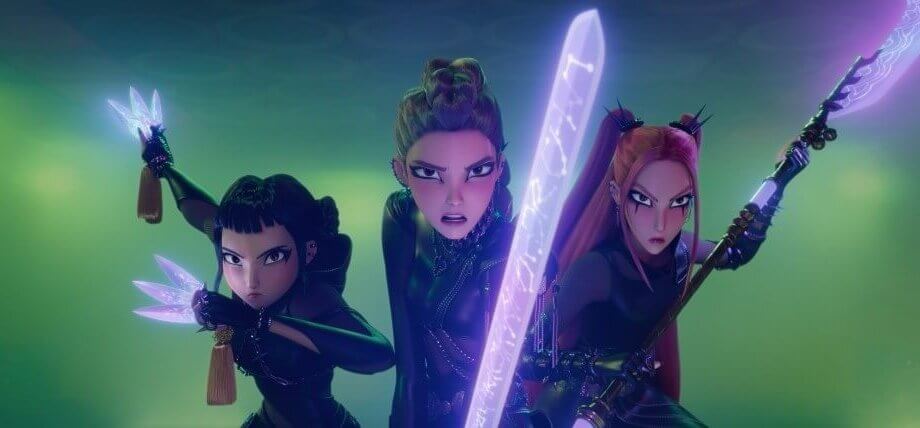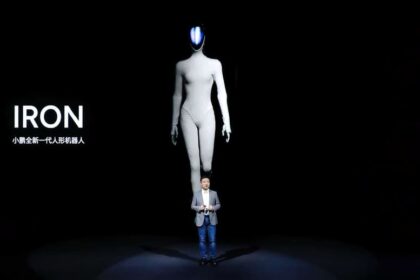The Rise of Fictional K-Pop: How ‘KPop Demon Hunters’ Conquered the Charts
In a year already brimming with surprises in the global music industry, few stories have captured the imagination of fans and industry insiders alike as much as the meteoric rise of the fictional K-pop bands from Netflix’s animated film KPop Demon Hunters. In a feat that seemed unthinkable just months ago, songs performed by these animated groups have not only topped US streaming charts but have also outperformed real-world K-pop titans like BTS and Blackpink. The phenomenon is rewriting the rules of pop stardom and blurring the lines between fiction and reality in the digital age.
- The Rise of Fictional K-Pop: How ‘KPop Demon Hunters’ Conquered the Charts
- What Is ‘KPop Demon Hunters’?
- How Did Fictional Bands Top Real-World Charts?
- Behind the Music: The Real Talent Powering the Fiction
- Why Is This Such a Big Deal? The Cultural and Industry Impact
- How Did Fans and the K-Pop Community React?
- What Makes the Music So Catchy?
- The Broader Implications: Fiction, Fandom, and the Future of Pop
- In Summary
Released on June 20, KPop Demon Hunters quickly became a global sensation, amassing over 33 million views on Netflix within its first two weeks. But it’s the film’s soundtrack—crafted by a dream team of K-pop producers and performed by a mix of real-life artists and voice actors—that has truly set the entertainment world abuzz. The fictional boy band Saja Boys and girl group Huntr/x have achieved what many thought impossible: topping the US Spotify charts and debuting in the top 10 of the Billboard 200, all while existing solely within the universe of an animated film.
What Is ‘KPop Demon Hunters’?
KPop Demon Hunters is an animated musical adventure produced by Sony Pictures Animation and directed by Maggie Kang and Chris Appelhans. The film follows the exploits of Huntr/x, a dazzling all-female K-pop group whose members—Rumi, Mira, and Zoey—lead double lives as demon hunters. Their music is not just entertainment; it’s a magical force that protects their fans and the world from supernatural threats. Their rivals, the Saja Boys, are a boy band with a dark secret: they are demons in disguise, sent by the demon king Gwi-ma to steal the souls of Huntr/x’s fans.
The film’s blend of high-stakes fantasy, K-pop spectacle, and coming-of-age themes has resonated with audiences worldwide. Its unique premise—combining the theatricality of K-pop with the narrative depth of anime and musical theater—has been praised by critics and fans alike. The movie’s Rotten Tomatoes score sits at a remarkable 97%, and it has topped Netflix’s charts in 33 countries, including the US, South Korea, Brazil, and France.
How Did Fictional Bands Top Real-World Charts?
The success of Huntr/x and Saja Boys on the charts is not just a quirk of fandom; it’s the result of a carefully orchestrated musical project involving some of the biggest names in K-pop production. The soundtrack features original songs written and produced by industry heavyweights such as Teddy Park (Blackpink, Taeyang), Lindgren (BTS, Dua Lipa), Jenna Andrews (BTS), and Stephen Kirk. The vocal performances are delivered by a mix of established K-pop artists and rising stars, including Ejae, Audrey Nuna, Rei Ami, Andrew Choi, Neckwav, Kevin Woo, and others.
Upon release, the soundtrack debuted at No. 8 on the Billboard 200—the highest debut for a soundtrack in 2025—and shot to No. 1 on the Billboard Soundtracks chart. On Spotify, the Saja Boys’ track “Your Idol” soared to No. 2 on the US chart, surpassing BTS’s Grammy-nominated “Dynamite,” which peaked at No. 3 in 2020. Huntr/x’s empowering anthem “Golden” debuted at No. 3, tying Blackpink’s best-ever US Spotify chart position for a girl group. These achievements mark the first time fictional K-pop groups have outperformed their real-life counterparts on such a scale.
Streaming numbers tell the story of a viral sensation. In its first four days, the soundtrack’s 12 songs earned 13.3 million official on-demand US streams. By the end of the second week, that number had more than tripled to 42.8 million streams, with “Golden” and “Your Idol” leading the charge. The album’s success has been amplified by social media, with TikTok challenges, fan art, and choreography videos fueling a feedback loop of engagement across platforms.
Behind the Music: The Real Talent Powering the Fiction
One of the keys to the soundtrack’s success is the authenticity and quality of its music. Executive music producer Ian Eisendrath, known for his work on The Greatest Showman, collaborated with K-pop’s elite to ensure the songs could stand alongside real-world hits. The process involved “temping” songs into storyboards, working closely with songwriters to create tracks that both advanced the film’s narrative and had standalone pop appeal.
Huntr/x’s vocals are provided by Ejae, Audrey Nuna, and Rei Ami, while the Saja Boys are voiced by Andrew Choi, Neckwav, Kevin Woo, Danny Chung, and samUIL Lee. Many of these artists have backgrounds as K-pop idols or songwriters, lending credibility and depth to the performances. The soundtrack also features contributions from real K-pop group TWICE, who recorded versions of the film’s diss track “Takedown” and “Strategy.”
Ian Eisendrath, reflecting on the project’s impact, notes:
“We’ve created this fictional group, and then to have the real thing authenticate it gave me faith in what we were doing—that they were interested, that they were willing. You never know when you dive into these things that are narrative, if they’re going to land in the music space outside.”
This blend of narrative and musical authenticity has allowed the soundtrack to transcend its animated origins and become a genuine pop phenomenon.
Why Is This Such a Big Deal? The Cultural and Industry Impact
The ascent of fictional K-pop bands to the top of real-world charts is unprecedented. It signals a new era in which storytelling, animation, and music can combine to create cultural phenomena that rival—and even surpass—traditional celebrity-driven pop acts. The Saja Boys and Huntr/x have amassed fanbases that rival those of established groups, with millions of social media mentions, fan art, and even merchandise sales. Netflix’s online shop saw a 400% increase in new customers following the film’s release, with band tees and plushies becoming top sellers.
For the music industry, this success demonstrates the power of cross-media synergy. The feedback loop between Netflix viewership and Spotify streams, amplified by viral social media trends, has created a self-sustaining engine of popularity. The soundtrack’s chart performance has also opened doors for awards consideration, with “Golden” being submitted for Best Original Song at the upcoming Oscars—a first for a Netflix animated musical.
From a business perspective, the phenomenon underscores the growing influence of fictional narratives and multimedia franchises in shaping entertainment trends. As Forbes notes, the Saja Boys’ ability to dethrone BTS highlights how storytelling and character-driven content can compete with real-life celebrities in terms of popularity and cultural impact.
How Did Fans and the K-Pop Community React?
Rather than sparking fan wars, the success of the Saja Boys and Huntr/x has been embraced by much of the K-pop community. BTS themselves appeared to celebrate the achievement, with frontman RM singing along to the Saja Boys’ “Soda Pop” during the group’s first livestream after completing military service. Netflix US even updated its bio to read, “BTS noticed Saja Boys 7.01.25.”
Director Maggie Kang has called for a collaboration between BTS and the Saja Boys, further blurring the lines between fiction and reality. Meanwhile, Blackpink is preparing for its first all-stadium world tour, and BTS is set to return with a new album and tour in 2026. The playful rivalry between real and fictional idols has only added to the excitement and engagement among fans.
Online, the fandom for Huntr/x and Saja Boys is indistinguishable from that of real K-pop groups. TikTok is flooded with dance covers and fancams, Reddit and K-pop forums are alive with hot takes and cosplay tributes, and fan art proliferates across Instagram and Twitter. As one Reddit user put it:
“This is the perfect intro to K-pop for anyone who’s been curious but didn’t know where to start.”
What Makes the Music So Catchy?
The soundtrack’s appeal lies in its ability to blend the infectious energy of K-pop with the narrative drive of musical theater. Songs like “Golden,” “Your Idol,” “How It’s Done,” and “Soda Pop” are not only earworms but also serve to advance the film’s story and develop its characters. The production team’s goal was to create tracks that could “live inside the movie and stand alone on the pop charts,” a dream that has now become reality.
Executive music producer Ian Eisendrath explains:
“Our goal from day one was to have the songs double-function as songs that forward or comment on the action story, because I do not believe you can take up screen time and not have it do something for the story.”
This approach has resulted in a soundtrack that resonates with both K-pop aficionados and newcomers, offering a gateway into the genre while delivering genuine pop hits.
The Broader Implications: Fiction, Fandom, and the Future of Pop
The runaway success of KPop Demon Hunters and its fictional bands raises important questions about the future of pop music and fandom. As digital platforms continue to blur the boundaries between media, the potential for fictional characters to achieve real-world stardom is greater than ever. The phenomenon also highlights the power of global streaming services like Netflix and Spotify to create and amplify cultural moments that transcend national and linguistic barriers.
For the animation industry, the film’s success is a beacon of hope at a time when original animated features have struggled at the box office. Co-director Chris Appelhans notes that audiences are hungry for fresh stories and bold creative choices, and that the conventional wisdom about what animated films can be is “narrower than it should be.”
With talk of sequels already swirling and awards season on the horizon, it’s clear that Huntr/x and Saja Boys are more than just a passing fad. They represent a new model for pop stardom—one where the line between fiction and reality is not just blurred, but actively celebrated.
In Summary
- Netflix’s animated film KPop Demon Hunters has propelled its fictional K-pop bands, Huntr/x and Saja Boys, to the top of US music charts, surpassing real-life icons BTS and Blackpink.
- The film’s soundtrack debuted at No. 8 on the Billboard 200 and No. 1 on the Billboard Soundtracks chart, with “Your Idol” and “Golden” breaking Spotify records for K-pop groups.
- The music was created by top K-pop producers and performed by a mix of real artists and voice actors, lending authenticity and appeal to the fictional bands.
- Social media virality, TikTok challenges, and fan engagement have fueled the soundtrack’s success, creating a feedback loop between Netflix viewership and music streaming.
- The phenomenon signals a new era where fictional narratives and multimedia franchises can rival real-life celebrities in popularity and cultural impact.
- The K-pop community, including BTS, has embraced the success, and the film’s creators hope to see more crossovers between fiction and reality in the future.
- With awards consideration and potential sequels on the horizon, Huntr/x and Saja Boys may become the most successful pop idols never to set foot on a real stage.












